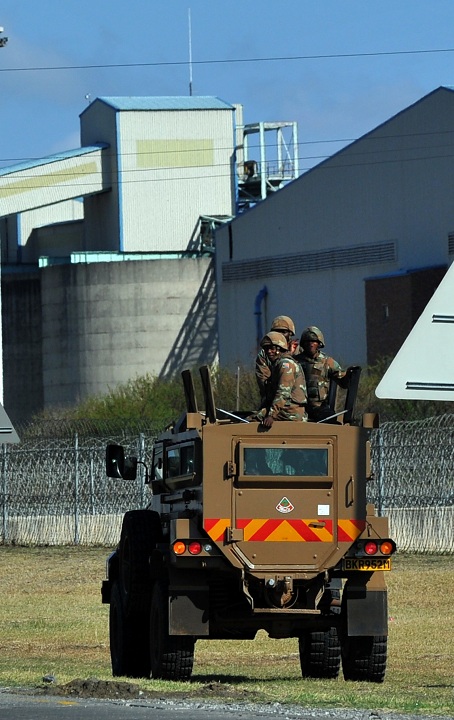TEL AVIV: US Defense Secretary Robert Gates said on Thursday that Syria should learn from the example of Egypt, where the army held fire as the people overthrew the rule of former president Hosni Mubarak.
Syrian President Bashar Al-Assad has faced nearly a week of protests, inspired by uprisings against authoritarian rulers across the Arab world.
"I would say that what the Syrian government is confronting is in fact the same challenge that faces so many governments across the region, and that is the unmet political and economic grievances of their people," Gates said during a visit to Israel.
"Some of them are dealing with it better than others. I’ve just come from Egypt, where the Egyptian army stood on the sidelines and allowed people to demonstrate and in fact empowered a revolution. The Syrians might take a lesson from that," he told reporters.
Dozens of demonstrators have been killed by troops in almost a week of violence centered on the southern Syrian city of Deraa.
Assad, a close ally of Iran, key player in neighboring Lebanon and supporter of anti-Israel militants, had dismissed rising reform calls in the country of 20 million people run by the Baath Party since a 1963 coup.
On Thursday, however, he made an unprecedented pledge of greater freedom and more prosperity to Syrians.
An aide to Assad in Damascus read out a list of decrees, which included a possible end to 48 years of emergency rule.
Cautious note
A hospital official said at least 37 people had been killed in Deraa on Wednesday when security forces opened fire on demonstrators.
The White House condemned Syria’s "brutal repression of demonstrations" and said those responsible for the violence must be held accountable.
The Egyptian military, which receives about $1.3 billion a year in US aid, has run a caretaker government in Cairo since Mubarak was forced to step down on February 11 following mass demonstrations against his three-decade rule.
Gates cited Syria, Libya and Iran as examples of "authoritarian regimes (that) have suppressed their people and have been willing to use violence against them."
"And so I think that what we see is the opening to the future that’s occurring in virtually all of these countries," said Gates.
Gates’s host, Israeli Defense Minister Ehud Barak, sounded a cautious note over the prospects for major domestic upheaval in Syria — a country with which he has recommended seeking negotiations as part of a wider regional peace drive.
"In regard to the peace opportunities — once again we cannot pass a judgment right now whether it’s good or not good, whether the situation is right or not, but the time that the Syrian government will decide that they’re open to consider negotiating with us, we will be open," Barak said.
"I think that this different situation creates not just threats and challenges, but also opportunity. And we have to be alert to be able to seize those opportunities the moment they emerge rather than let them slip out of our fingers and face the uncertainties of deeper chaos in the Middle East."


